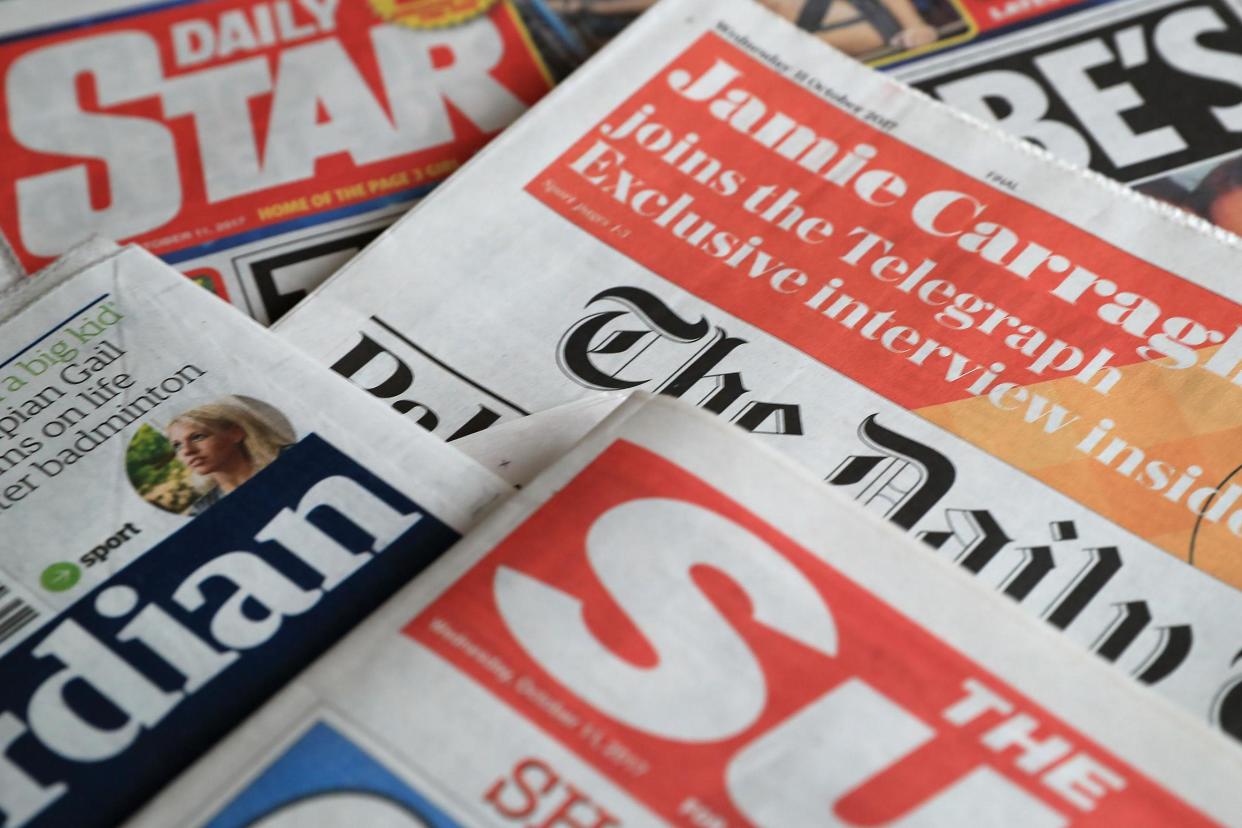What the papers say: Brexit dominates headlines across UK and abroad after Boris Johnson's election victory

Boris Johnson’s landslide election victory has made headlines at home and abroad.
Brexit appears to be the prism through which the majority of newspapers and their editorials view the election victory, as the Prime Minister promised the departure will take place by January 31.
In the UK, the Daily Mail hails Mr Johnson’s “Christmas message of healing” under the headline “We did it!”
The Sun declares Mr Johnson's speech "Brexcellent". The PM told voters to take a Christmas break from Brexit, promising to leave the EU by 31 January as promised, the paper says.
DAILY MAIL SOUVENIR ELECTION ISSUE: We did it! #TomorrowsPapersToday pic.twitter.com/3aBa2nLHXF
— Neil Henderson (@hendopolis)
"Let the healing begin" is The Times' soundbite from the PM's speech.
The paper adds that he offered "an olive branch" to Remain voters in his address. Mr Johnson said he would not ignore those who opposed Brexit and asked for their help in building a new relationship with the European Union.
FT: A stonking Mandate #TomorrowsPapersToday pic.twitter.com/UFgBLCZCQh
— Neil Henderson (@hendopolis)
The FT Weekend's lead considers what may happen next with Brexit.
The paper cites cabinet ministers as predicting the PM could use his 80-seat majority to adopt "a softer approach" to leaving the EU.
It claims senior Tories suggest he could extend the transition period beyond the deadline of December 2020.
GUARDIAN: Next stop, Brexit #TomorrowsPapersToday pic.twitter.com/P3sIOnfGOr
— Neil Henderson (@hendopolis)
The Guardian says "next stop, Brexit", highlighting Mr Johnson's commitment to leave Europe in six weeks time. Its front page also says Jeremy Corbyn will step down as Labour leader early next year, following the party's defeat.
The i weekend splash strikes a less positive note, warning of the "battle for the United Kingdom".
Inside, the paper says Mr Johnson now faces "the daunting challenge" of maintaining the Union.
Meanwhile, across Europe, the editorial in The Irish Times says that Mr Johnson appears to have solved tensions within his party over Europe, but wider problems remain.
UK election result: What Boris Johnson's win means for Brexit and Ireland https://t.co/9GgmlIV6wF
— The Irish Times (@IrishTimes)
It says: “It was, Johnson said, an election result that would ‘bring our nation together’.
“That’s hardly true even of Johnson’s own nation, England, which remains bitterly divided over Brexit. But more broadly, the very idea of the United Kingdom as a multi-national state is now in doubt.
“The SNP’s surge in Scotland, the march of English nationalism and the election of more nationalist than unionist MPs in Northern Ireland all point to the fragility of a union that now looks in real peril.”
In France, Le Monde says the focus is now on Britain’s future relationship with the EU.
Its editorial says: “It’s now up to Europeans to stick together and guide them to the right choice: preserving as closer links as possible with its neighbours rather than let them carry out their threat of turning the UK into a dumping paradise at the gates of Europe.”
Liberation offers up a double-header of British references on its front page – sticking Mr Johnson’s head on the Queen’s body and running the headline “Let It Be”.
To Germany, and Suddeutsche Zeitung’s head of foreign policy Stefan Kornelius writes that Mr Johnson “had it easy”, calling Labour leader Jeremy Corbyn “the main campaigner of the Tories”.
He writes: “The idea of a choice is that – well: you have a choice. The British didn’t really have a choice.
“Nobody showed them the path that would have led them out of the deep undergrowth of Brexit.”
On the future negotiations, he adds: “The EU must now stand by its principles more than ever: no softening of the internal market, no light membership.
“That will be at the expense of the Irish, probably true. But if the British overruled rules of the internal market or undermined standards, the EU’s central vault would collapse.”
Eirin Hurum, the European correspondent for Norwegian paper Aftenposten, asks “clown or statesman, which prime minister has the UK woken up to?”
She writes that Mr Johnson may be troubled by the “whole new landscape of voters” in areas the Tories may not have reached previously.
“These include voters from northern England who are concerned about minimum wage rates and social safety nets,” she writes.
“They expect Boris Johnson to spend public money on infrastructure and investment outside London, and he takes them seriously.
“Among the voters are also small industry leaders and factory workers who work in the large automotive industry in northern England. For these, it is not unimportant that the UK still has access to European markets.”
Read more
Johnson set for celebratory 'victory lap' after election landslide

 Yahoo News
Yahoo News 
